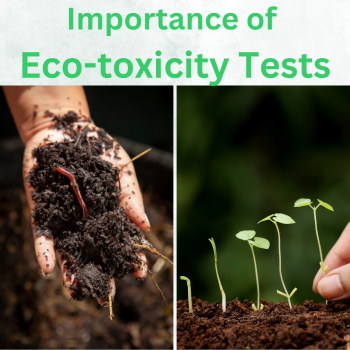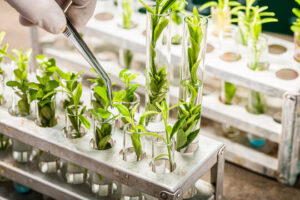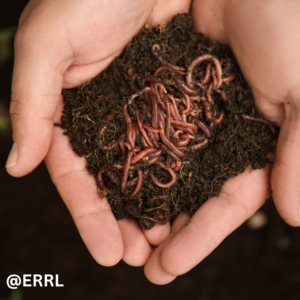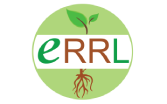
Meta Description : Discover why eco toxicity testing is crucial for biodegradable products. Learn how it ensures environmental safety, regulatory compliance, and consumer confidence. Find out how our lab provides comprehensive eco toxicity testing services, including plant testing (OECD 208) and earthworm testing (ISO 11268-1, ISO 11268-2). Contact us today!
Introduction :
As the global shift towards sustainable practices gains momentum, biodegradable products have emerged as a promising alternative to traditional plastics. However, it is essential to ensure that these products do not pose any harm to the environment during the degradation process. This is where eco toxicity testing plays a vital role. In this blog post, we will explore the significance of eco toxicity testing for biodegradable products and how it ensures the safety of ecosystems, compliance with regulations, and consumer confidence. Additionally, we will provide insights into the specific testing protocols we employ at our lab to assess the impact of biodegradable products on plants, earthworms, and the presence of heavy metals.
Assessing Environmental Safety :
Eco toxicity testing plays a crucial role in evaluating the potential impact of biodegradable products on the environment. Through these tests, we can assess the compatibility of these products with terrestrial ecosystems, ensuring that they do not pose any risks or hazards. One specific area of concern is the impact on plant growth and development. To address this, we employ the OECD 208 testing protocol.
OECD 208 – Plant Testing :

The OECD 208 guideline provides a standardized method for assessing the effects of chemicals and substances on the growth and development of plants. In eco toxicity testing for biodegradable products, this protocol is employed to evaluate any potential adverse effects on plant germination, growth, biomass production, and overall health.
The testing process involves exposing plant seeds or seedlings to varying concentrations of the biodegradable product or its degradation byproducts. The plants are cultivated under controlled conditions, such as temperature, light, and moisture, to simulate real-world scenarios. Observations are made over a specific period to assess parameters like seed germination rate, root and shoot growth, chlorophyll content, and any visible signs of toxicity.
ISO 11268 – Earthworm Testing :
 Earthworms are widely recognized as essential indicators of soil health and ecosystem stability. They play a crucial role in soil aeration, nutrient cycling, and decomposition processes. Therefore, assessing the impact of biodegradable products on earthworms is an integral part of eco toxicity testing. ISO 11268-1 and ISO 11268-2 provide guidelines for conducting earthworm toxicity tests.
Earthworms are widely recognized as essential indicators of soil health and ecosystem stability. They play a crucial role in soil aeration, nutrient cycling, and decomposition processes. Therefore, assessing the impact of biodegradable products on earthworms is an integral part of eco toxicity testing. ISO 11268-1 and ISO 11268-2 provide guidelines for conducting earthworm toxicity tests.
ISO 11268-1 focuses on acute toxicity testing, which measures the effects of short-term exposure to the biodegradable product or its degradation byproducts on earthworms. ISO 11268-2, on the other hand, addresses chronic toxicity testing, which evaluates the effects of long-term exposure.
In these tests, earthworms are exposed to different concentrations of the biodegradable product or its degradation byproducts in artificial soil or soil-like substrates. Parameters such as earthworm mortality, growth, reproduction, and behavior are carefully monitored and recorded. These tests help determine any potential adverse effects on earthworm populations and their overall ecological function.
By conducting plant testing (OECD 208) and earthworm testing (ISO 11268-1, ISO 11268-2), we can comprehensively assess the environmental safety of biodegradable products. These tests provide valuable information about the potential impact on plant growth, soil health, and ecosystem stability, ensuring that the products are safe for the environment.
Importance of performing these tests are –
- Regulatory Compliance :
Regulatory bodies worldwide have established guidelines and standards to safeguard the environment and living organisms from potential harm caused by biodegradable products. Eco toxicity testing is a fundamental requirement for regulatory compliance. By conducting these tests, manufacturers can demonstrate that their products adhere to the necessary standards and minimize any adverse impact on the environment. Compliance with these regulations not only protects ecosystems but also ensures that biodegradable products can be marketed and accepted with confidence.
- Consumer Confidence :
Comprehensive Eco Toxicity Testing Services:At ERRL, we are proud to offer comprehensive eco toxicity testing services for biodegradable products. Our lab stands out as the best choice for performing these tests due to several key factors:- Expertise and Experience: Our team of scientists and technicians possess extensive knowledge and experience in eco toxicity testing. With years of expertise in the field, they understand the intricacies of assessing environmental safety and are equipped to provide accurate and reliable results.
- State-of-the-Art Facilities: Our lab is equipped with state-of-the-art facilities and cutting-edge technology to ensure precise and efficient testing. We continuously invest in upgrading our equipment and resources to stay at the forefront of eco toxicity testing methodologies.
- Compliance with International Standards: We adhere strictly to internationally recognized testing protocols and guidelines such as OECD 208, ISO 11268-1, ISO 11268-2, and ISO 3025. By following these established standards, we ensure the reliability and validity of our test results.
- Timely and Comprehensive Reporting: We understand the importance of timely reporting in the decision-making process. Our lab is committed to providing comprehensive and detailed reports promptly, enabling you to make informed decisions about your biodegradable products.
Conclusion :
Eco toxicity testing, including plant testing (OECD 208) and earthworm testing (ISO 11268-1, ISO 11268-2), is essential for ensuring the environmental safety, regulatory compliance, and consumer confidence in biodegradable products. By evaluating the effects of these products on plants and earthworms, we can make informed decisions, minimize adverse effects, and foster the development of sustainable practices. At ERRL, we offer comprehensive eco toxicity testing services, including plant and earthworm testing, utilizing standardized protocols and state-of-the-art facilities. Contact us today on +91-9619449245 or contact@errl.co.in to learn more about our eco toxicity testing services and how we can assist you in ensuring the safety and sustainability of your biodegradable products.
Keywords : eco toxicity testing, biodegradable products, environmental safety, regulatory compliance, consumer confidence, heavy metals, testing protocols, plant testing, earthworm testing, ISO 3025, OECD 208, ISO 11268-1, ISO 11268-2.
External Article Links :
- https://europepmc.org/article/MED/35406232....
- https://pubs.acs.org/doi/10.1021/es504258u
- https://link.springer.com/article/10.1007/s10532-023-10038-1
- https://www.omicsonline.org/open-access/effectiveness-of-single-and-microbial-consortium-of-locally-isolated-beneficial-microorganisms-libem-in-bioaugmentation-of-oil-slu-2155-6199-1000430-100184.html
- https://www.omicsonline.org/open-access/industrial-wastewater-treatment-using-phycoremediation-technologies-and-coproduction-of-valueadded-products-2155-6199-1000428-98392.html
- https://www.omicsonline.org/open-access/biodegradation-of-polythenes-by-bacteria-isolated-from-soil-.pdf
- https://www.ncbi.nlm.nih.gov/pmc/articles/PMC2873018/
- https://pubs.acs.org/doi/10.1021/acs.est.5b03333
